Internet potstickers: Women seek dumpling emoji
Updated: 2016-01-27 11:23
By Hezi Jiang in New York(China Daily USA)
|
||||||||
They love dumplings, and now two women in San Francisco are seeking to turn that affection into a dumpling emoji and change how those small digital icons are chosen for mobile platforms.
The quest to get a dumpling emoji started last year when Jennifer 8. Lee messaged her friend Yiying Lu a photo of potstickers - Chinese fried dumplings. Lu wanted to message back with an emoji of a dumpling. But she could not find one. She found emojis for a hamburger, pizza, sushi, ramen, pasta and doughnuts, but no dumpling. So she immediately designed one - a dumpling with heart-shaped eyes - and sent it to Lee.
Lee is the CEO of the literary startup Plympton and a former reporter for The New York Times. Lu is the creative director at 500 Startup in San Francisco, where she moved to from Sydney, where she taught typography and magazine design at the University of Technology.
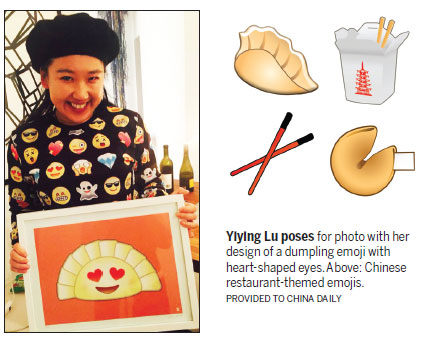
Finding no dumpling emoji, the two women sought certification from the Unicode Consortium, an international nonprofit that standardizes how software communicates text. Its approval is needed so an emoji can be used across mobile platforms. But after learning how many steps and the length of time that process takes, they decided to seek changes to make it "more transparent and inclusive," said Lee.
The next step was to raise money for the dumpling emoji to be accepted by the Unicode Consortium, as well as to fund their effort to change the consortium. They turned to the fundraising website Kickstarter, which accepted their campaign of Where Is the Dumpling Emoji?
The fundraising was launched on Kickstarter on Dec 16, 2015. The goal was to raise $3,750 in 60 days. It was reached in 50 hours, said Lee, partially due to a $1,000 grant from The Awesome Foundation, which gives out weekly $1,000 grants to an awesome project. The Kickstarter fund reached $10,000 on Jan 20 and will end Feb 12.
Unicode has 11 full voting members, each of whom pays $18,000 a year for the right to vote on an emoji. Eight of the voting members are US multinational tech companies - Oracle, IBM, Microsoft, Adobe, Apple, Google, Facebook, and Yahoo - plus German software company SAP, the government of Oman and the Chinese telecom company Huawei.
Anyone can submit an emoji for the committee to review. What is also needed is a written proposal explaining the emoji's compatibility, expected usage, image distinctiveness, completeness and many more elements, all of which take extensive research.
Lee and Lu want to make selecting an emoji easier, and are creating a grassroots organization called Emojination. "Emoji by the people, for the people" is their motto.
With the money raised through Kickstarter, they will join Unicode as a non-voting associate member, which costs $2,500 a year. This will give Emojination full access to Unicode e-mail lists and technical committee meetings.
The initial Kickstarter goal was set at $3,750 because they also need money for rewards to the backers, which include dumpling totes, dumpling arts and dumpling cookbooks.
The extra money raised will give their organization more years of membership in Unicode, during which they plan to push their change campaign. They also want to create a system where popular emoji requests sent through the hashtag #emojirequest can systematically bubble up, and be transformed into proper proposals for the Unicode Consortium.
"We want to add a layer between the public and Unicode," said Lee. "Even the people from Unicode Consortium were very supportive," said Lu. "We are adding our skill set to the committee."
In addition to the dumpling emoji, the women are proposing to Unicode emojis for a Chinese take-out box, a fortune cookie and chopsticks. Lee and Lu presented their proposals in front of the Unicode committee on Monday and were waiting for the result on if the dumpling emoji and the three others will become official candidates. But it will take at least another year until approved candidates show up on mobile devices, and some can still get killed during the process. "It takes a long time, and that's another thing we would love to change," said Lu.
Lee also believes that some gender issues in emojis need to be resolved. A male character can be a detective, a policeman, Santa Claus or a doctor. Whereas, a female character can only be one of the four: a bride, a princess, a dancer or a Playboy bunny.
hezijiang@chinadailyusa.com
(China Daily USA 01/27/2016 page1)
- A glimpse of Spring Rush: little migrant birds on the way home
- Policy puts focus on genuine artistic students
- Police unravel market where babies are bought, sold as commodities
- More older pregnant women expected
- Netizen backlash 'ugly' Spring Festival Gala mascot
- China builds Mongolian language corpus
- Thousands of beckoning cat on display in Japan's Goutoku Temple
- Chinese fishing boat capsizes off S. Korean island: Yonhap
- 42 cases of Zika infection reported in N.E. Panama
- US announces further amendments to Cuba sanctions
- Special envoy to visit Laos and Vietnam
- El Nino expected to wreak havoc in S. America well into 2016

 Sea ice traps boats as cold wave sweeps across East China
Sea ice traps boats as cold wave sweeps across East China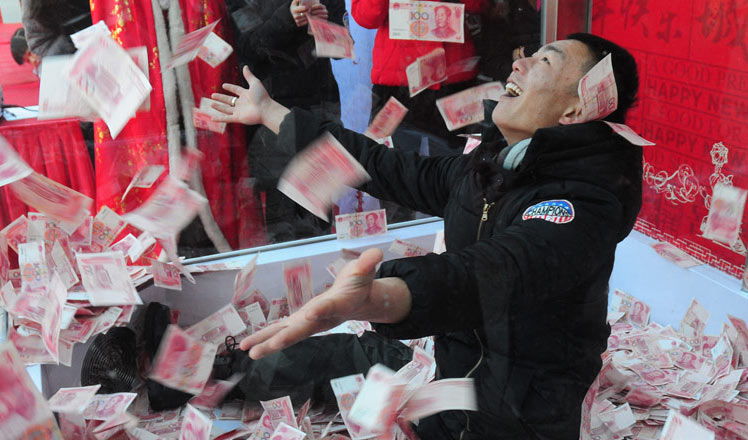
 10 tourists grab free money in one minute in East China
10 tourists grab free money in one minute in East China
 Warm colors at sunrise cast off the chill in Qingdao
Warm colors at sunrise cast off the chill in Qingdao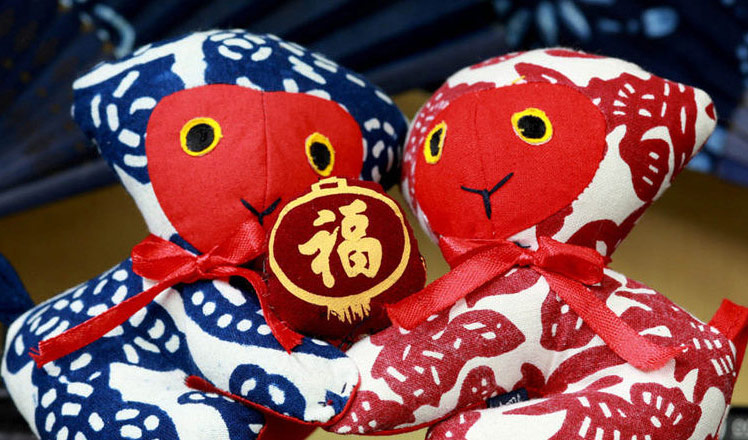
 Artists use many techniques to create New Year monkeys
Artists use many techniques to create New Year monkeys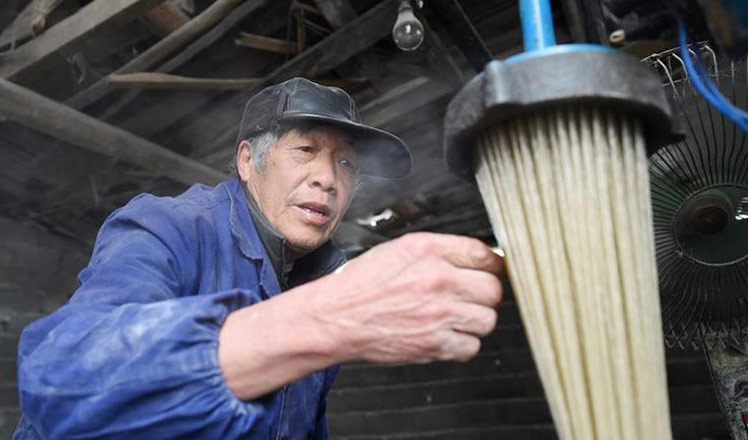
 Villagers make sweet potato vermicelli in China's Guangxi
Villagers make sweet potato vermicelli in China's Guangxi
 Creation of China Daily's Tibetan-style font
Creation of China Daily's Tibetan-style font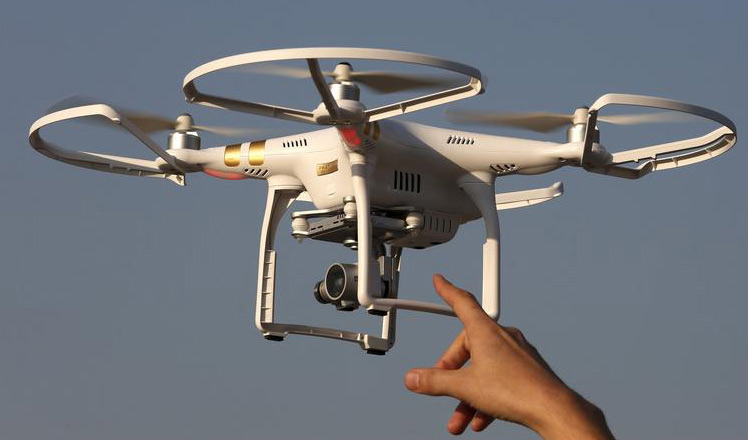
 Drone makers see soaring growth but dark clouds circle industry
Drone makers see soaring growth but dark clouds circle industry China's Zhang reaches Australian Open quarterfinals
China's Zhang reaches Australian Open quarterfinals
Most Viewed
Editor's Picks

|

|

|

|

|

|
Today's Top News
National Art Museum showing 400 puppets in new exhibition
Finest Chinese porcelains expected to fetch over $28 million
Monkey portraits by Chinese ink painting masters
Beijing's movie fans in for new experience
Obama to deliver final State of the Union speech
Shooting rampage at US social services agency leaves 14 dead
Chinese bargain hunters are changing the retail game
Chinese president arrives in Turkey for G20 summit
US Weekly

|

|